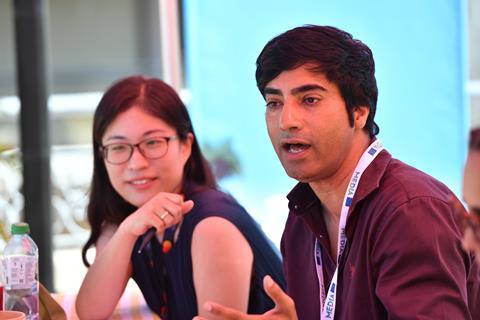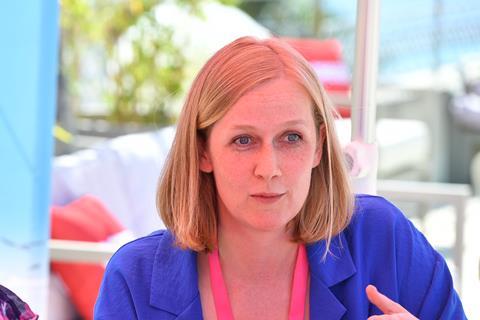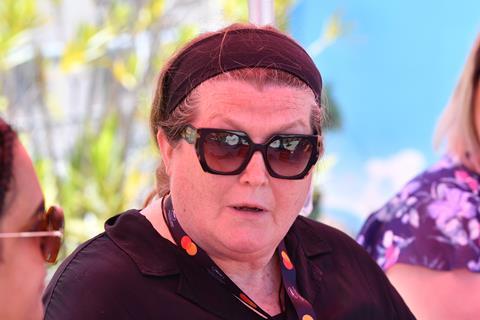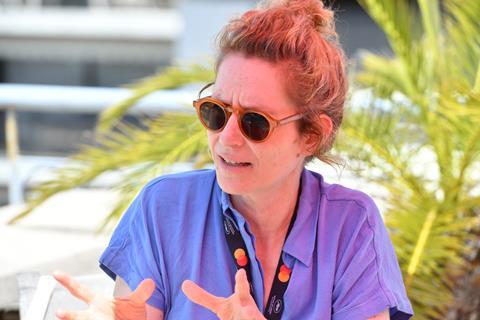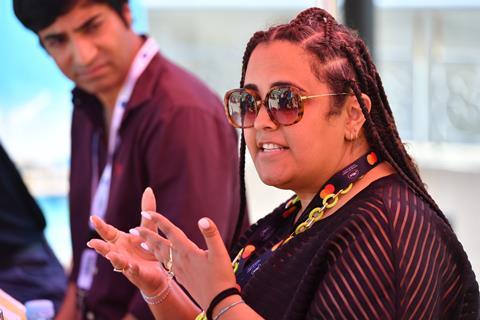Production, sales, distribution and festival experts discussed mental health in the film industry at a roundtable here, hosted by Screen International in partnership with the Saudi Film Commission.
Finding the right work-life balance is a key challenge for workers across the film industry, which has a significant effect on mental health, according to leading executives here in Cannes.
“As a producer you have to be flexible and cater to the needs of your partners so you put yourself last,” says producer Sol Bondy, whose Berlin-based One Two Films co-produced Cannes titles Holy Spider (2022) and Armand (2024). “You are the one who has to take care of the mental health and wellbeing of everyone else on your crew.”
“It’s a particularly an issue with creatives,” adds filmmaker Ashley Horner of the UK’s Pinball Films. “You need to teach them to not send emails at 2am.”
Setting boundaries has been integral at UK- and US-based impact and sales company Together Films, where contracts often stipulate there should be no out-of-hours calls or the use of a personal phone number, along with a host of further clauses that have mental health in mind. “Whenever we have a new client, we have a kick-off meeting to discuss wellness,” says Sarah Mosses, Together Films’ founder and CEO.
“It’s having the paperwork attached so you have some sort of leverage if people reach these points,” adds Ethiopian‐Canadian filmmaker Tamara Dawit of Gobez Media. “But also having training and team building so people understand what this means and it’s not just a line on a paper.”
It’s all relative
When it comes to labour laws that protect physical and mental health, some countries are better than others. Indian producer Arfi Lamba of Bombay Berlin Film Production states that lengthy hours and seven-
day working weeks are industry standard in his country. “I’ve been met with major resistance and laughed at when I’ve said that we should have a holiday,” he reveals.
Similarly, Gianluca Chakra, CEO at MENA outfit Front Row Filmed Entertainment, says that in countries such as Egypt “unions are not really respected” in the way they are in the West. “You see directors that are shooting an episode [on rushed shoots to meet Ramadan production cycles], and they literally have a bed next to their camera and get just three hours’ sleep,” he claims. “Many of them have mental breakdowns and are not protected at all. It’s an industry that keeps on feeding it.”
However, even when countries do have robust regulations, the infrastructure is not necessarily always in place to ensure the rules are enforced. “It’s done on trust, to a degree, and people break that trust,” said Horner.
Some territories have seen the launch of independent services such as the UK’s Call It! App, which allows workers to file anonymous complaints. Launched in 2021, the app is now being adapted for Germany.
For freelancers, there is also the “don’t bite the hand that feeds you” situation, according to Helene Granqvist, producer at Sweden’s Nordic Factory Film and president of Women in Film and Television Sweden. She adds that freelance workers are often reluctant to come forward.
Louise H Johansen of mental health consultancy Sane Cinema agrees. “It’s about how you say ‘no’ when you’re relying [on a job] financially,” she says. “It sounds very simple but it’s absolutely challenging.”
Looking ahead
The panel felt hopeful that the new generation entering the film industry was ushering in a more mindful approach to mental health. “They’re much more aware when they’re burning out,” says Liuying Cao, co-founder and head of sales at China’s Parallax Films. “The young generation know when to say: ‘I don’t like this, I give up, I’m lying down.’ But that’s something we take for granted.”
Johansen urges that it’s ultimately on everyone to make a conscious effort. “It all depends on the production company’s willingness to learn and grow with the knowledge,” she says. “But as cultural organisations, we can also look in this direction and dare to have measures where people can actually speak out.”
In partnership with:






















